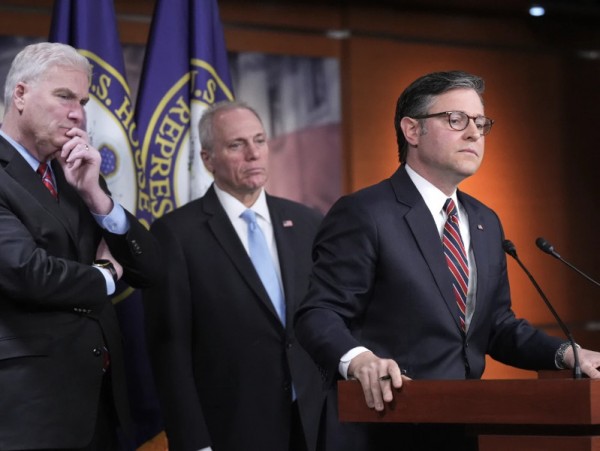FAYETTEVILLE, Ark. (AP) — A federal judge on Monday struck down key parts of an Arkansas law that would have allowed criminal charges against librarians and booksellers for providing “harmful” materials to minors.
U.S. District Judge Timothy Brooks found that elements of the law are unconstitutional.
“I respect the court’s ruling and will appeal,” Arkansas Attorney General Tim Griffin said in a statement to The Associated Press.
The law would have created a new process to challenge library materials and request that they be relocated to areas not accessible to children. The measure was signed by Republican Gov. Sarah Huckabee Sanders in 2023, but an earlier ruling had temporarily blocked it from taking effect while it was being challenged in court.
“The law deputizes librarians and booksellers as the agents of censorship; when motivated by the fear of jail time, it is likely they will shelve only books fit for young children and segregate or discard the rest,” Brooks wrote in his ruling.
A coalition that included the Central Arkansas Library System in Little Rock had challenged the law, saying fear of prosecution under the measure could prompt libraries and booksellers to no longer carry titles that could be challenged.
“This was an attempt to ‘thought police,’ and this victory over totalitarianism is a testament to the courage of librarians, booksellers, and readers who refused to bow to intimidation,” said Holly Dickson, executive director of the ACLU of Arkansas.
But supporters of the law, known as Act 372, say they will continue to fight for its implementation.
“Act 372 is just common sense: schools and libraries shouldn’t put obscene material in front of our kids,” Arkansas Gov. Sarah Huckabee Sanders said in a statement to KATV-TV. “I will work with Attorney General Griffin to appeal this ruling and uphold Arkansas law.”
The ruling comes as lawmakers in some conservative states are pushing for measures making it easier to ban or restrict access to books.
Laws restricting access to certain materials or making it easier to challenge them have been enacted in several other states, including Iowa, Indiana and Texas.
—-
This story removes a sentence in the penultimate paragraph of outdated material.


















